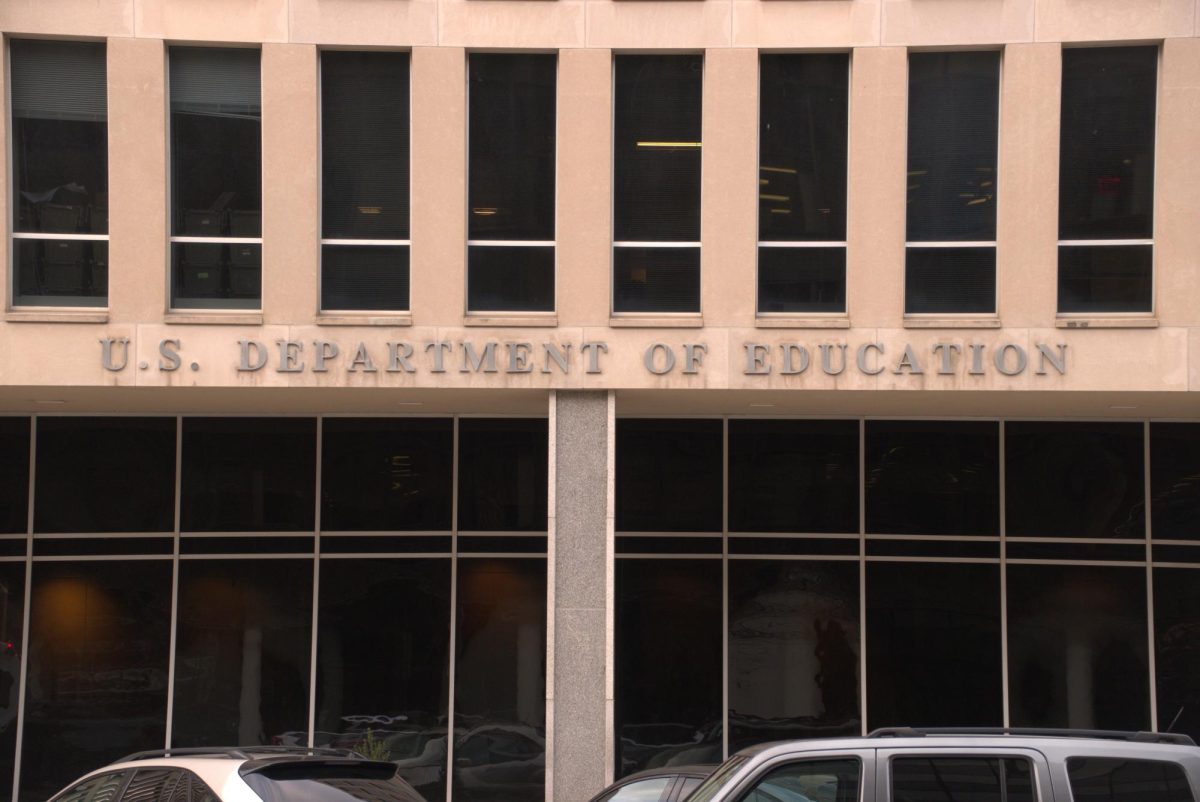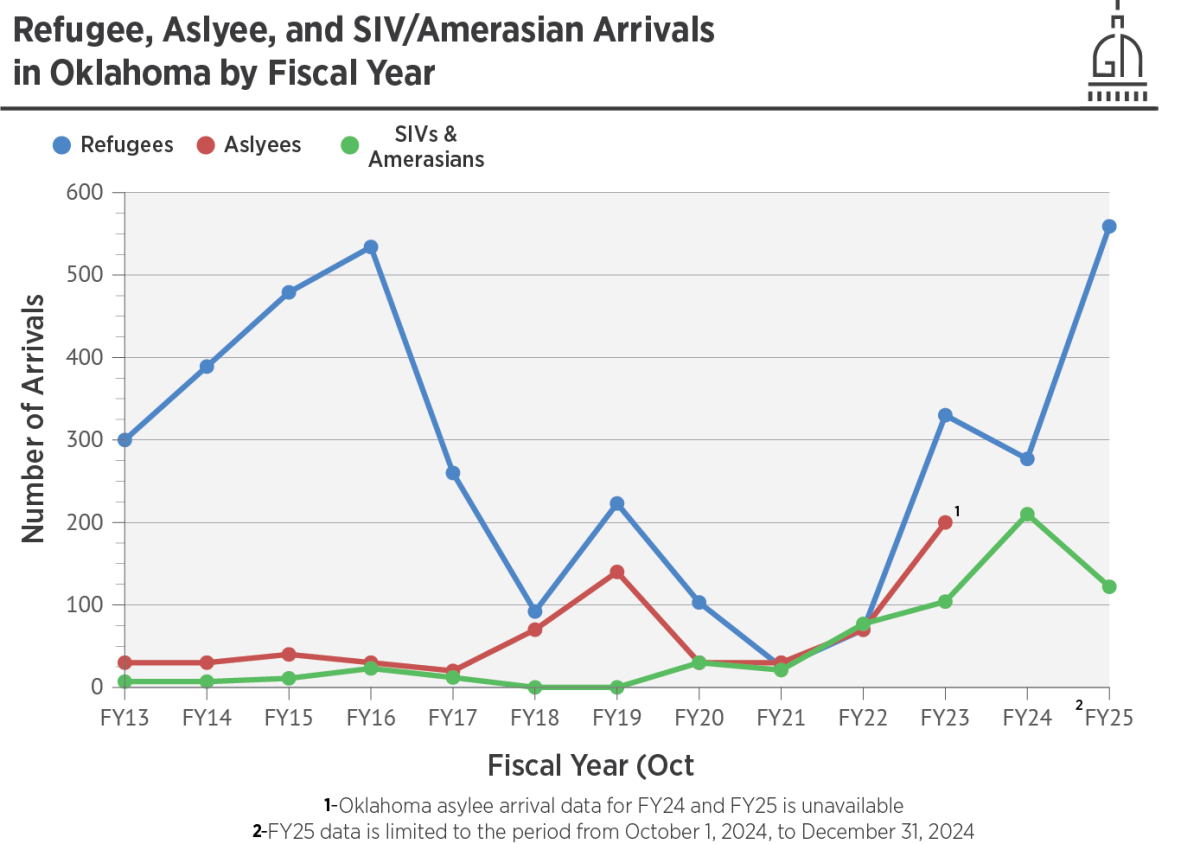WASHINGTON – As President-elect Donald Trump prepares to return to the Oval Office, the Republican goal to abolish the Department of Education is back on the table with the support of Oklahoma’s U.S. House delegation and the state’s superintendent of public instruction.
On Nov. 7, Oklahoma State Superintendent of Public Instruction Ryan Walters shared a memo with schools across the state preparing them for the elimination of the Department of Education. The memo enthusiastically supported Trump’s campaign promise to eliminate the department.
In Washington, Republican Policy Committee Chair-elect Rep. Kevin Hern (R-Tulsa) echoed Walters’ enthusiasm.
“I personally believe that we should have more of our education at the state level as opposed to Washington, D.C.,” Hern said. “This has been something that goes all the way back to Ronald Reagan so this is not a mystery where Republicans are.”
“Let our parents, and our teachers, and our administrators do their job.”
Rep. Josh Brecheen (R-Ada) believes letting states have complete control over education will improve outcomes in Oklahoma. Oklahoma is currently ranked 49th in education according to a review by U.S. News & World Report.
“Just maybe the one size fits all is limiting us,” Brecheen said. “You don’t have innovation and ingenuity when you have one model.”
Rep. Tom Cole (R-Moore) told the Oklahoman that he agrees with Trump’s assessment of the education system saying it is bloated and pursuing the wrong policies. While he agrees with Trump’s plan, he wants to ensure federal funding remains available to schools.
The Oklahoma delegation Dean, Rep. Frank Lucas (R-Cheyenne), shares similar concerns.
“That’s a long-standing goal of the Republican Party. My issue is, if you’re capable of doing that, how do you implement it,” Lucas said. “The state of Oklahoma is the primary funder of public schools. Local property taxes are an important element, but Federal dollars are really important too.”
“Reading programs, disabled programs, those kinds of issues, how do you make sure those resources are still available to local school districts?”
Although the party’s priorities have sometimes drifted, Republicans have supported dismantling the Department of Education since it became a stand-alone agency in 1979 under the administration of President Jimmy Carter.
For now, federal funding would be safe
While a clear plan for abolishing the department has yet to be released, federal funding for public schools would likely not be at risk if the Department of Education is abolished, experts say.
During the 2020-2021 school year, federal funding accounted for 14.3%, or just over $1.1 billion, of Oklahoma’s public school funding, according to the National Center for Education Statistics, an office of the Department of Education. Across all 50 states and Washington, D.C., federal funding accounted for 10.6% of public school funding.
According to the National Center for Education Statistics, most federal funds flowing to the states for public education come from a handful of programs enacted by Congress.
Most federal public school funding comes from Title I, of the 1965 Elementary and Secondary Education Act, which began before the Department of Education took its current form.
The Individuals with Disabilities Education Act, or IDEA, accounts for the third largest portion of federal public school funding.
While IDEA and Title I funds are administered by the Department of Education, the second largest public school funding program is administered by the Department of Agriculture. Funds from programs under the Child Nutrition Act accounted for $16 billion in 2019-2020 federal public school funds.
“One scenario would be, we’re going to do away with it (the Department of Education) and all of the programs it administers. That seems very unlikely and implausible,” Daniel Hamlin, an education professor at the University of Oklahoma, said. “Just to get rid of all these programs outright seems very, very unlikely.”
“Another scenario would be to keep all these programs and just redistribute them into different agencies within the federal government.”
Hamlin said a third scenario is most likely. The scenario Hamlin believes is most likely includes redistributing some programs while cutting others.
‘I judge it very unlikely’
Despite the Republican party’s majorities in the House and Senate, formally dismantling the department would not be an easy feat.
Deven Carlson, a political science professor at the University of Oklahoma, said without further legislation to roll back funding programs, abolishing the Department of Education would not have much impact.
“It was authorized by Congressional legislation passed in 1979, that legislation would have to be undone,” Carlson said. “I judge it very unlikely that Congress passes legislation.”
In an interview with the Oklahoman, even Cole questioned the political feasibility of abolishing the Department of Education through an act of Congress.
“I don’t see where you get the 60 votes in the Senate,” Cole said.
According to Carlson, disruption to day-to-day operations through staffing decisions and executive action is a more feasible mechanism.
“The Secretary has a fair amount of discretion over what the department does and does not do with respect to issuing administrative rules and that sort of thing,” Carlson said. “Some of it, it’s bound to do by law, by what Congress has said it has to do. But there are other issues for which the department has a lot of authority.”
“Just kind of scaling back or changing or eliminating priorities that the current (Biden) administration has.”
Kevin Eagleson is reporting from Gaylord News’ Washington bureau this fall as part of an OU Daily scholarship.
Gaylord News is a reporting project of the University of Oklahoma Gaylord College of Journalism and Mass Communication. For more stories by Gaylord News go to GaylordNews.net








Katherine • Dec 14, 2024 at 9:38 am
They “can’t get the votes” to abolish the Federal Department of Education through the People’s representatives, so they plan to subject the Department to death by a thousand cuts. It’s truly despicable.